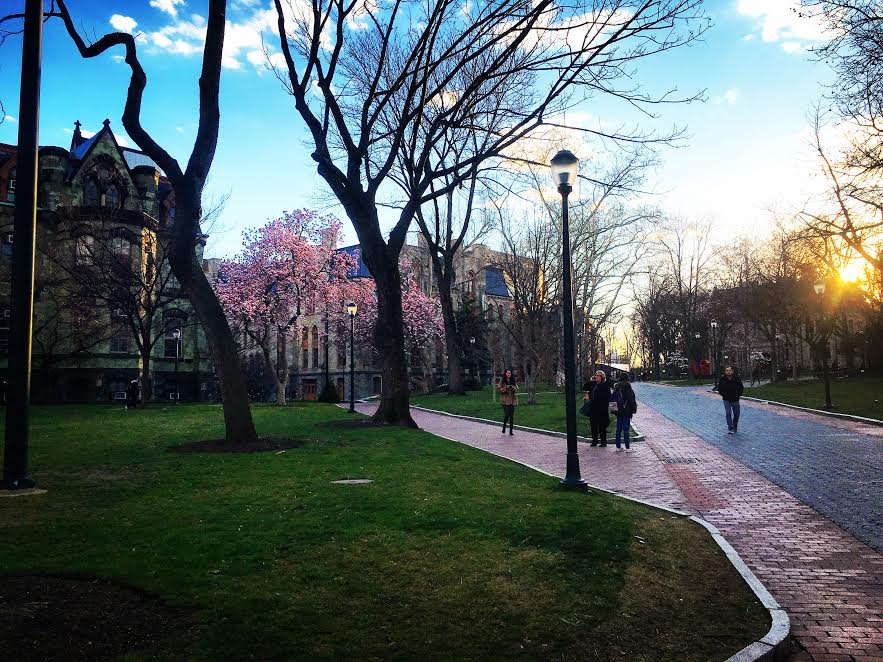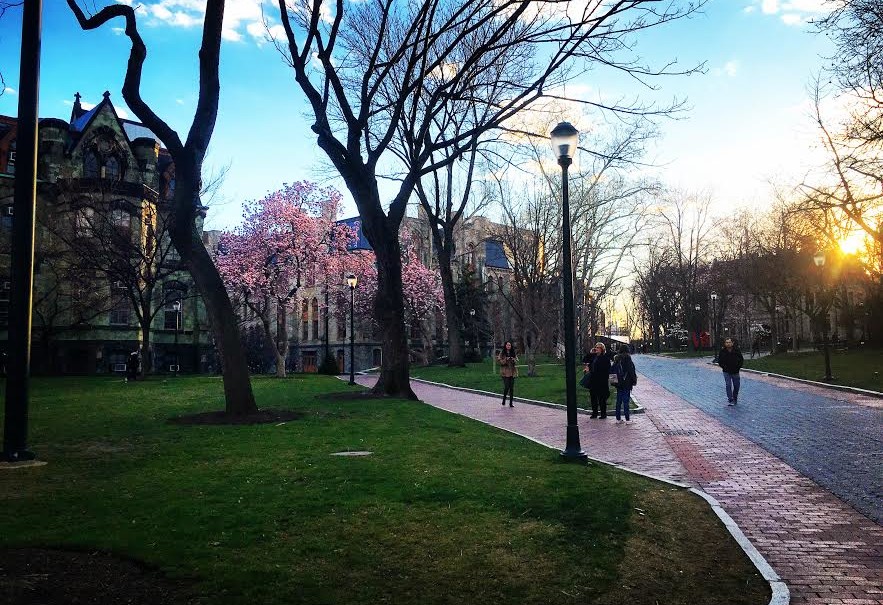Our resident college admissions expert Dr. Aviva Legatt  shares her tips for how to make the most of a college tour.
shares her tips for how to make the most of a college tour.
“Any questions?” asks college senior, Rachel, to a crowd of 20 prospective college students and their parents.
Dead silence follows as the prospects avoid eye contact and the parents stare at Rachel as if they could teleport the secret formula for “how to get in” from their glance. After a brief silence, a barrage of questions from the parents follows: “How safe is this school?” “Can my child double major?” “Can I meet with an academic advisor?”
On college visits I’ve observed and participated in as a college counselor, I notice that parents tend to take the lead on asking questions while the students look like reluctant participants. The problem with this dynamic is that when students don’t ask questions, it is very unlikely that they will get enough information to make a confident decision about where to apply.
Before the tour, it’s your job as a student to:
1) Do your research on the college. Researching the alumni network, academic majors, and extracurricular activities will allow you to see how good of a job the school is doing in the areas that matter to you and help you come up with concrete reasons for why you want to attend (hello, essay supplement!).
2) Keep an open mind about what you might see. If you go on a college tour with the expectation that you will like (or dislike) the college, you may miss important information that could sway your opinion in the opposite direction (even if the college is mom and dad’s alma mater, even if it’s located in your state, even if you know someone who goes there).
When on a tour, there are many questions that you can ask based on what you see on the tour and your prior research. Here are five important ones:
- I was reading that your college has alumni living around the world. Can you share a personal example of how alumni at the school have impacted you? The presence of alumni you can lean on will be extremely valuable to you both while you’re in college and afterwards. If the student tour guide cannot answer this question, this may be a red flag about this college’s alumni network or the happiness of its student body.
- I’m interested in xyz What kind of jobs do alumni in this major typically take right after graduation? If you’re uncertain about your career goals, you want to take up a major that will give you access to a variety of career options; not just in one kind of field or one kind of role. Colleges will have a career services office that keeps data on alumni career placement. Make sure you take a look at this data. If the college isn’t tracking it, that could be a red flag.
- What tends to happen on campus over the weekend? Do people stick around or do they tend to leave? If the campus is located in a rural or suburban environment, the availability of school-sponsored weekend activities is critically important. A robust campus life will include a choice of activities like dance shows, fireside chats with professors, and on-campus festivals. If all most people simply leave campus, you may want to reconsider your options (depending on your weekend plan preferences).
- How do students get help if they struggle in an academic subject? Is there on-campus tutoring available, and is it free? What is the process for getting a tutor? Most college students struggle academically in at least one subject, even if they were high school academic all-stars. At many colleges, however, there is low availability for free tutoring. Find out about your eligibility to get a tutor, if you needed one, and how far in advance you need book tutoring (you don’t want to wait until finals, which can be too late to rectify an academic issue).
- What are the living arrangements for students for freshman year and after freshman year? If you’re planning to live far away from home, you want to make sure you’re comfortable. While you can’t expect luxury (although some campuses are known for having beautiful dorms), you want to make sure you can at least tolerate the living conditions for the first year. For example, does it matter to you that bathrooms are single-sex or co-ed? Are students in singles, doubles or triples? It’s also helpful to find out about the typical cost and frequency of students living in off-campus housing to get an idea of campus life after freshman year.
Ta-da! These questions will get you started to have a super successful and informative college tour. Don’t forget to do your own research so you can ask questions that are targeted to your situation. If the tour guide can’t answer your questions, don’t leave campus without figuring out who you should talk to (if you’re not sure about the appropriate contact person, I love helping my students figure it out!).
Remember that the college tour is your opportunity to learn more about the college. The tour is not your official interview; what you say on the college tour will not be held against you in the court of admission.
Seriously, though, and most importantly, don’t let your parents do all the asking. I’m sure you have questions too.
Contributor: Dr. Aviva Legatt, Founder of VivED Consulting



Comments (0)